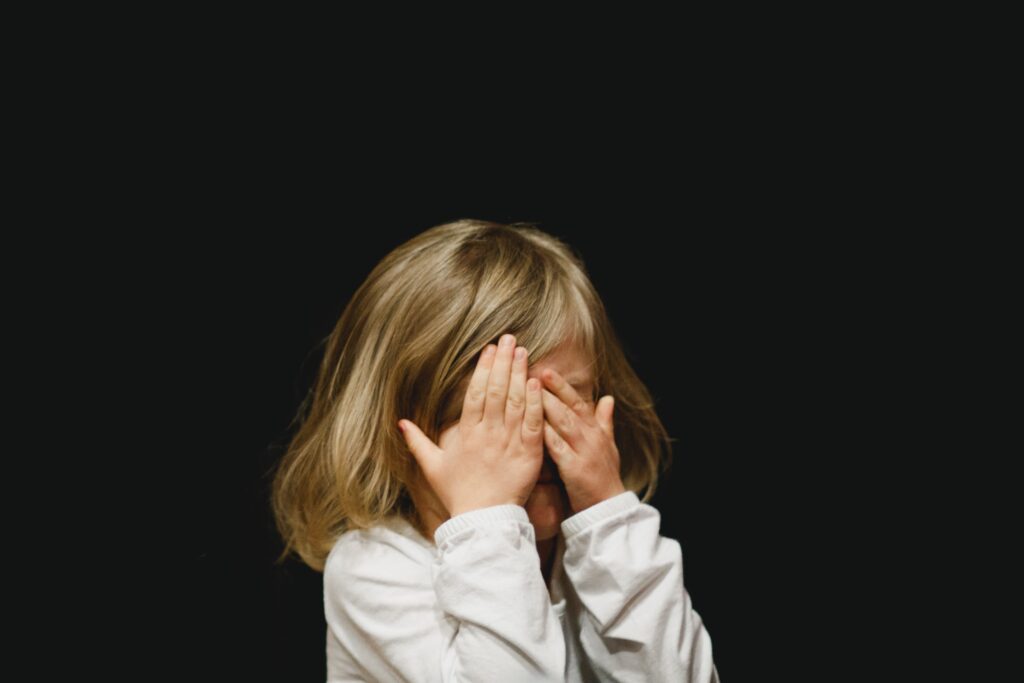
Does your child regularly:
– get nervous or fidgety,
– have unexplained tummy aches,
– become agitated, irritable, or have meltdowns, or
– have difficulty sleeping, concentrating, or socialising?
Anxiety lurks beneath many physical and behavioural issues. While some children are genetically more prone to anxiety and all children will have occasional spikes, 10-15% of people under 18 will suffer from Generalised Anxiety Disorder (GAD). Childhood GAD has an average onset age of 8.5 years. Although GAD expresses itself differently across children, a typical feature is excessive worry on a regular basis. It is often preceded by a shocking or distressing event, such as bullying, rejection, separation, or loss of a loved one.
When anxiety generalises across more than one area, it can be about socialising, health and safety, injury or death, homework, public speaking, tests, making mistakes, getting in trouble, or specific phobias. In your child’s mind, these situations feel genuinely threatening. Anxiety can also cause physical symptoms like insomnia, nightmares, tiredness, stomach aches, headaches, diarrhoea, irritability, memory and concentration problems.
Whether your child has an anxiety disorder or just an anxious temperament, keep in mind it won’t be ‘cured’ overnight, but you play a major role in teaching your child to regulate their own anxiety.
What NOT to do with your anxious child:
It is tempting to let kids avoid situations that make them anxious, but be careful. Avoidance will worsen their anxiety, as they miss out on developing coping skills and proving to themselves they can deal with uncomfortable situations and feelings.
– Don’t get angry at your child for being anxious. Even if anxiety turns into meltdowns, stay calm. If you can’t keep yourself calm, put yourself in timeout.
– Don’t use too many words. Anxious people cannot process too much verbal information. Keep your messages short and sweet (see below).
– Don’t tell a panicky child to stop worrying. Don’t say “You’ll be fine. You’ve done this before” or “Calm down!”. This invalidates their subjective reality. And as the old saying goes, ‘In the history of calming down, no one ever calmed down by being told to calm down’.
What to do with your anxious child:
‘Empathy before explanation’ – Marshall Rosenberg
– Empathise with your child. Tell them you understand that anxiety feels scary.
– Try to understand why they are worried. For example, if their worry is about presenting in front of the class, ask, “Are you worried you’ll forget what to say? Or that the other children won’t like your speech?”. This allows you to enter their world (empathise) before you explain ways to think or act differently.
– Encourage them to take slow deep breaths to calm the physical effects of anxiety and to let their body know they are not in immediate danger.
– After you understand their why, help them find a solution. If they believe they won’t be able to give their speech, suggest that they tell themselves thoughts like, “Even though it’s hard, I can do it” or “I have practised this and I’m ok!”
– Change ‘what if’ to ‘what is’. Research shows that being present can reduce anxiety. Worry is about the future, so practising mindfulness and grounding techniques with your child, reminding them to ‘be here now’ is very beneficial.
Other tips for anxious kids:
– Don’t over-schedule your child’s life. All kids need unstructured down-time to relax, play, daydream, and self-regulate. Some need more time than others.
– Manage screen time. Two hours at a time is the rule-of-thumb, but I know every household is different. Observe your child. If after an hour on screens they’re more argumentative or heightened, you know their limit. Make sure everyone unplugs and engages face-to-face every day. Regulating screen-time is part of teaching good psychological habits.
– Change your kids’ relationship with worry by highlighting that it’s not all bad. Many high-anxiety children think something is wrong with them, which only makes things worse. Tell them that worrying has a purpose, because back in ancient times it helped our ancestors avoid predators and kept the tribe safe. Because we have ancient brains in a modern world, worry is still trying to protect us and that is perfectly normal.
– Finally, and most importantly, manage your own stress. Kids are like tuning forks: If you are anxious, they will be too. If you demonstrate healthy ways to cope, they will learn from you. Reduce your own load. Manage your own mind. Let things go. Practice compassion for yourself.
Watching your child suffer from anxiety can be painful and frustrating, but showing kindness to yourself as well as your child will help a lot.
Our psychologists see children over 10 years of age and love working with parents to help them cope better with their children. Book an appointment today!
